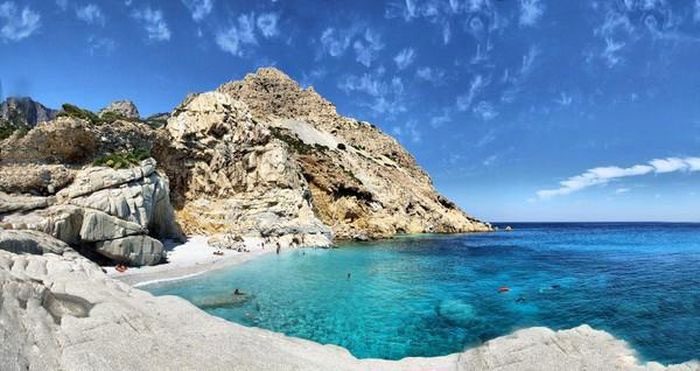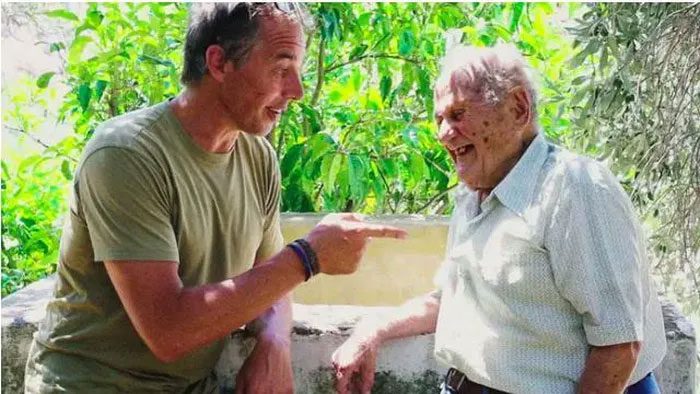A man with terminal cancer lived nearly three more decades thanks to a change in his life.
When Stamatis Moraitis, a 66-year-old Greek man, was told by doctors that he had only 6 to 9 months to live, he felt overwhelmed. Before his diagnosis, Moraitis, who had spent most of his life in the suburbs of New York and Florida, struggled with shortness of breath and could no longer complete a full workday. According to the doctors, he was suffering from stage four lung cancer.
As a result, he decided to return to his homeland with his wife and live on Ikaria Island. This island is known as one of the five Blue Zones in the world, located between Athens and Turkey in the Mediterranean. He did not want his family to incur the thousands of dollars in funeral expenses in the U.S.
He thought: “Let me rest beside my family, by the sea, where my loved ones won’t have to spend too much on my funeral.” However, upon returning to Ikaria, something extraordinary happened. The place he chose to spend his remaining days was unique and secluded. Here, many residents live past 100 years old. Gradually, he began to enjoy life there, breathing fresh air, admiring the clear waters, and connecting with old friends.

Ikaria Island in Greece is one of the five Blue Zones in the world.
Moraitis began growing grapes in his backyard. He realized he wouldn’t live to taste the ripe grapes, but at least his wife would have the vines to remember him by.
Yet, three decades later, Moraitis was still alive and had cultivated all kinds of fruits and vegetables, including grapes and olives, on his family farm.
When Dan Buettner, a longevity expert and author of the book “Live to 100: Secrets of the Blue Zones”, asked Moraitis for his secret, he simply shrugged and said, “I don’t know! I guess I forgot I was supposed to die.”
It remains unclear what allowed Moraitis to live an additional three decades after being diagnosed with terminal cancer. He may possess certain genetic traits commonly found in “supercentenarians”, which help them avoid diseases like cancer.

Dan Buettner and Stamatis Moraitis.
However, Buettner suspects that the main factor contributing to our longevity may not be internal but rather our surrounding environment – the people, nature, air, and lifestyle. A study of Danish twins revealed that genetics only accounts for about 20-25% of our lifespan.
According to Buettner, Moraitis didn’t consciously try to do anything to be healthier. All he did was change his environment.
Buettner even attempted to replicate the Blue Zone lifestyle of the residents of Ikaria in the U.S. and achieved significant success. Starting in the small town of Albert Lea, Minnesota, in 2009, his Blue Zones Project has enabled many Americans to live like centenarians in the five Blue Zones around the world.
These projects promote walking and exercise, build bike lanes, provide healthier food options at grocery stores and restaurants, and organize various community connection activities such as volunteering or mural painting.
For Moraitis, his daily living environment gave him a purpose to be active every day until the end of his life. If he wanted to cook with olive oil or grapes, he had to go outside and climb a ladder to pick them. “Whether it’s easy or hard, I have to be able to do it,” he laughed.
Aside from being active, Moraitis did nothing but eat organic food he had grown himself.
“I am still happy and working every day,” Moraitis shared with the media in early 2013, just a few weeks before he passed away at the age of 98 (or 102, as Moraitis could not remember exactly).


















































